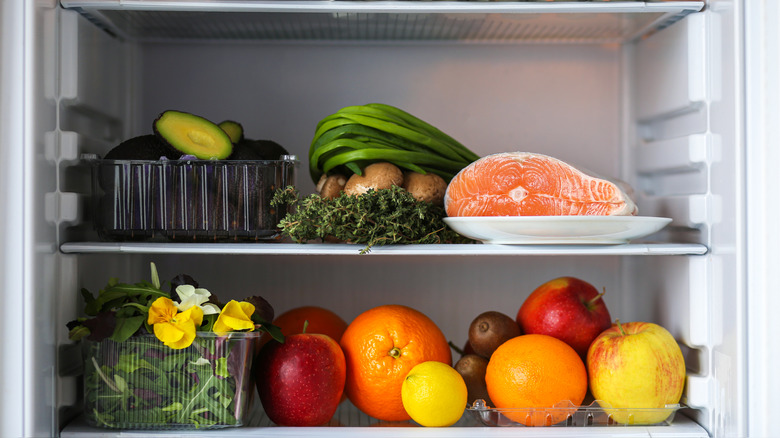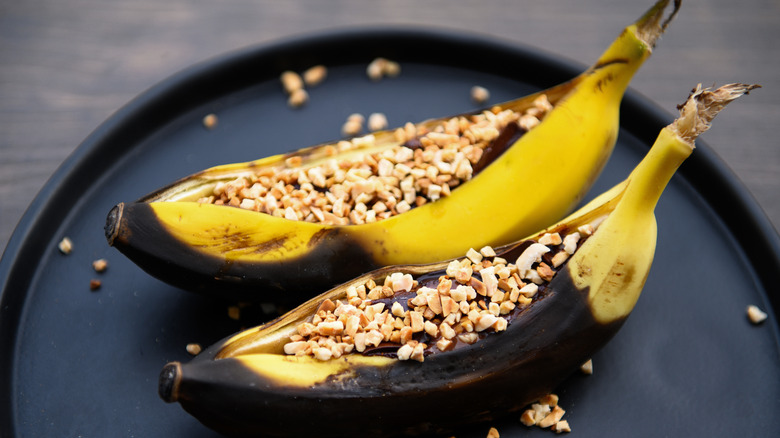How To Protect Your Fresh Produce In Heat And Humidity
People aren't the only things that wilt under intense heat waves. Your produce does, too.
Some produce ripens faster — and spoils quicker — in the heat, according to The Takeout. The extreme heat experienced across the U.S. has forced farmers to harvest and ship their crops sooner to avoid spoilage. Some regions of the country are deluged with rain, which waterlogs produce and accelerates decomposition. Adding to this perfect storm are continuing supply chain issues in the agriculture industry, which hold up food in transport and can lead to suboptimal storage conditions.
Cold chain technology company Sensitech Inc. explains to The Snack that fruits and vegetables are at the mercy of not only high temperatures but also relative humidity, which is the ratio between the actual moisture content in the air and the amount of moisture the air can hold before condensation. Higher temperatures hold less moisture and yield higher relative humidity.
Different types of produce react differently to increased humidity. For example, drier items, like garlic and onions, thrive in an environment with less moisture. Produce with high water content – watermelons and cucumbers — needs higher relative humidity to curb water loss. However, when relative humidity exceeds the amount of water in the produce, condensation happens and that can make produce slimy and gross (via The Snack).
Help your produce beat the heat
Storage problems aren't just reserved for the supply chain but can occur in your home as well, particularly when temps are soaring. To save your produce from an early grave, The Takeout recommends drying it well before putting it away. Storing high water content produce with excess water from washing — or even the condensation in a produce bag — leads to faster disintegration.
But what about storage? Michigan State University explains that the crisper in your fridge, with its adjustable humidity levels, was made specifically to keep produce fresh while stored. Veggies prefer higher humidity, so they need more airflow, while fruits do better in low humidity. But that's not the only reason to keep them apart. Fruits that continue ripening, like cantaloupes, apples, and peaches, give off ethylene gas, which can wreak havoc on other produce.
Some items, like tomatoes and bananas, are best kept out of the fridge, but the higher temps can cause them to spoil faster. So the green bananas you bought yesterday might turn yellow faster than anticipated. The Takeout recommends eating produce as soon as it has ripened. Since that's not always feasible, they suggest freezing before it spoils. If you're trying to use up ripened produce, you can try grilling fruit or making a confit. Of course, if you're brave enough to bake in the heat, there's always banana bread.

